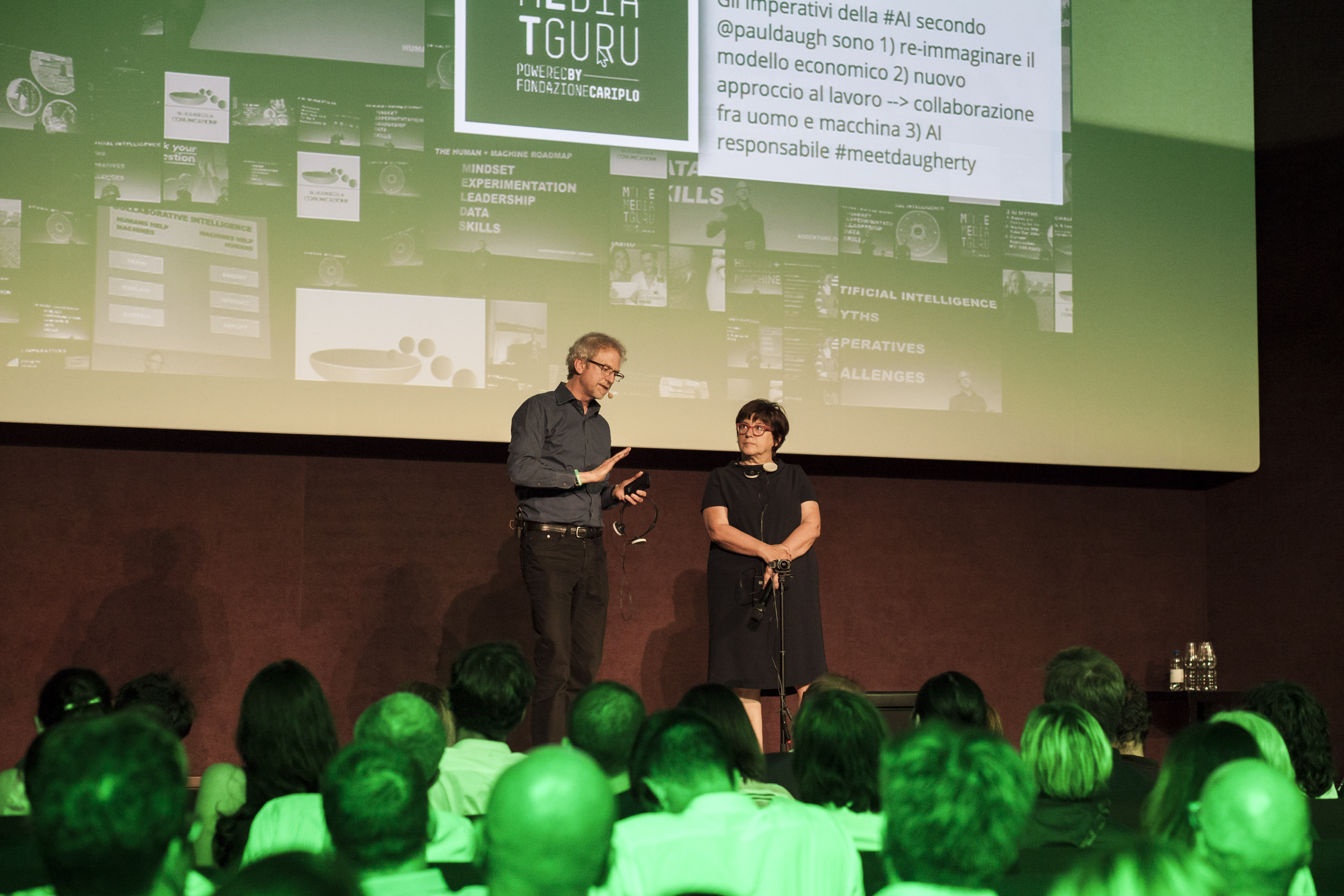Post
AI. Myths, imperatives and challenges according to Daugherty

“Technology is neutral, it’s the way man uses it that can change the world”. This is the vision of Paul Daugherty, Chief Technology & Innovation Officer of Accenture, fourth guest of Meet the Media Guru who, at the “Leonardo da Vinci” National Museum of Science and Technology in Milan, investigated the future of the coexistence of the man+ machine pair in the workplace. Watch Paul Daugherty’s lecture.
According to Paul Daugherty, since ancient times technology has always been at the centre of human lives: from the discovery of fire, millions of years ago, to the digital transformation of today, with the AI as the protagonist as well as the engine of the future.
Although Artificial Intelligence is conceived today as one of the most avant-garde technologies, its origins date back to the fifties, when for the first time computer enhancement technologies were discussed.
Artificial intelligence: who is she?
Indeed, what is Artificial Intelligence? For the guru this means all those systems that can extend human capacities to feel, understand, act and learn. Although the concept of contemporary AI is only in its infancy, for Paul Daugherty “the innovation that it will bring in our lives will be incredible, comparable only to the invention of electricity”.
A monumental turning point , of course, but that will never replace the man, his creator, but will increase the potential of everyday life both in the private and professional fields.
During the evening, Daugherty identified three myths, three imperatives and as many challenges concerning Artificial Intelligence.
Three myths on Artificial Intelligence which need debunking
- Robots are not a threat. Artificial Intelligence will not destroy humanity, but will walk alongside it joining it in, simplifying some operations that still today are in human hands;
- The machines will not steal our jobs. The robots will not replace the human factor, but will help create new jobs and professions that do not exist today. Machines must be understood as technological innovations with which we have to work; it is up to man to update his skills and abilities to keep up with progress;
- Methodologies will not change. The approach to work will not change, what will change are the terms of the relationship between man and machine: no longer man-machine but rather man+machine, an addition.
Three imperatives to follow
- Planning the business model anew. Imagining a new financial and human capital is fundamental to adapt the current professions in view of the growing diffusion of Artificial Intelligence.
- New approach to work. Artificial Intelligence is a collaborative intelligence that requires a bidirectional relationship between man and machine: while man with his skills creates the machine and endows it with all the intelligence and data necessary to make it work, in response the machine improves the possibilities of man.
- Responsible Artificial Intelligence. Referring to Isaac Asimov’s three laws of robotics, Daugherty recalls how AI should always be used for the benefit of humanity. This is an imperative which brings into being the ethical question of an Artificial Intelligence that is above all responsible but also honest, impartial and transparent.
Three challenges for companies
- New skills and training. With the increasing diffusion of Artificial Intelligence, it becomes necessary to fill the gap between the skills already available in the labour market and those necessary, which are more than the former. It is therefore necessary to train old, new and future workers to allow a more serene and effective collaboration for the man+machine combination.
- Versatile data. Unsuitable or manipulated information can undermine the quality of AI-based research on which companies rely to plan, operate and learn. It is therefore essential to learn how to manage data correctly to do the most accurate and reliable job as possible.
There is no finish line. Artificial Intelligence does not have a goal to reach because it will continue to develop and grow with us.
